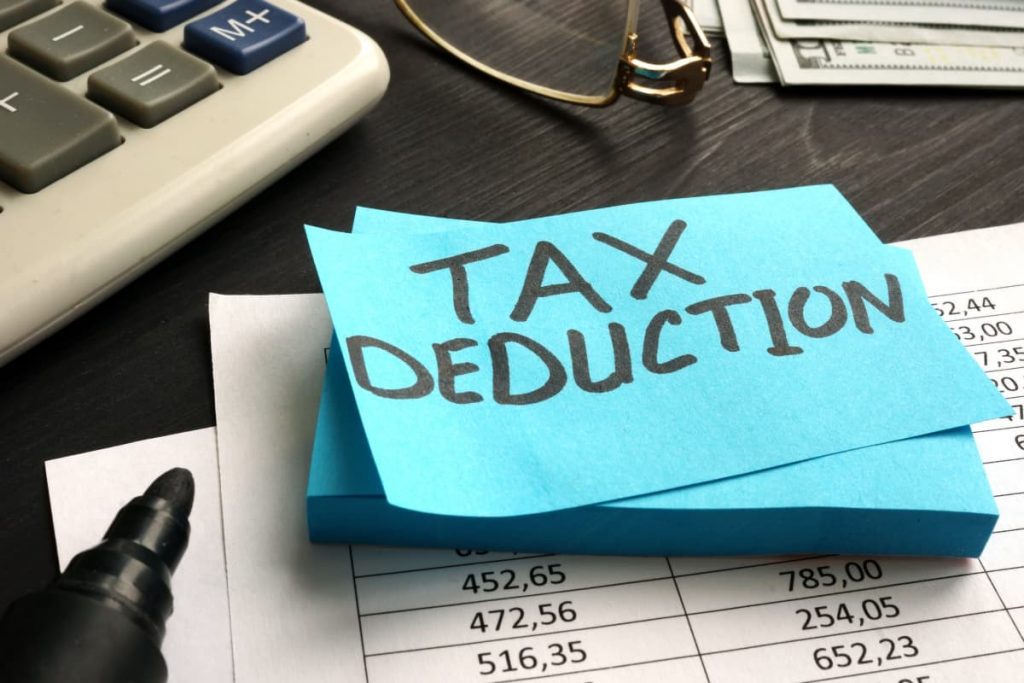
Is GoFundMe Tax deductible?
Recently, Australia has been faced with some of the most shocking natural disasters seen in our lifetime.
From drought ravaged farmlands to catastrophic raging fires. Torrential rain, record-breaking hail stone sizes, damaging floods and storm damaged properties.
Throughout all this hardship, Australian people have been incredibly generous – as Australian people always are during difficult times. There’s been substantial donations made towards hay bales for farmers, to support both the firefighters of the Rural Fire Service as well as people affected by the severe bushfires we’ve endured recently, there’s been donations made to flooding victims and of course, we’ve donated to all the fantastic services out there that have always, through thick and thin been there to support us in hour hour of need – organisations like the Australian Red Cross and the Salvation Army, to name just a couple.
In the digital age, the way in which we donate to people and organisations that are in need has changed. Perhaps the most well-known platform to have come into prominence in the last decade or so is GoFundMe, although there are numerous similar platforms. GoFundMe is a fantastic way to seek donations, because all the transactions can be done safely online, and all the campaigns seeking funding can be shared via social media which means worthy causes are able to go viral and bring in considerably higher amounts of money than they’d be otherwise able to.
When you donate via a platform like GoFundMe, you are not always entitled to deduct the amount in your income tax return for that year. In fact, it can get a little confusing, which makes this a key tax topic that we’re going to delve into. Here’s how to know what donation is tax deductible and which donation is not tax deductible.
What donations are tax deductible?
There are four criteria that the ATO outlines as conditions for determining whether or not a donation is tax deductible.
Deductible Gift Recipient (DGR)
The first key to identifying whether or not you can claim a donation as a tax deduction, is by understanding DGRs. A DGR is a Deductible Gift Recipient, as registered on the ACNC charity register. It is an organisation that can legally receive donations that are tax deductible. If you’re uncertain whether or not the organisation you’re donating to is a DGR, then you can visit the ACNC charity register and navigate to “will my donation be tax deductible”.
Is it actually a donation or gift?
Have you ever purchased a box of chocolate bars to help fundraise your child’s sporting team and thought you are donating? Unfortunately, that isn’t the case. When claiming a gift or donation as a tax deduction, it must truly be a gift or donation, meaning you don’t receive any item of monetary value in return. That means those chocolate bars you bought don’t count as a donation!
Donation categories
The donation you make must be of money or property. So any monetary donation you make to a DGR over $2 counts. Additionally, any property bought 12 months before the donation, properties that the ATO recognises to have a value of more than $5000, $5000 (or less) worth of shares and trading stocks can be claimed. On top of the money and property, heritage and cultural gifts can also be claimed.
Relevant conditions are met
It’s important to ensure that any relevant donations that the DGR you’re donating to are complied with, otherwise, you could be forfeiting your right to claim the donation or gift as a deduction.
Exceptions to ATO outlines to the rules
Of course, with every rule there’s always some exceptions. Firstly, in some cases you may not need a receipt of your donation to claim it as a deduction. For example bucket donations of up to $10 can be claimed without a receipt. Additionally, you can use other methods such as bank statements as proof of a donation having been made. That being said, receipts are always a good practice, especially if you make a cash donation. If you do, always ensure you ask for a receipt as it is common to not receive one.
Touching on the point about whether or not you’ve actually made a donation or gift, there are some cases in which you may be given a small item where you can still claim a tax deduction over $2. An example would be donating to a DGR that provides you with promotional material such as a pen or rubber wristband in exchange for your donation.
The Rules Around Third-Party Sites (like GoFundMe)
As we touched on, donating via third party sites such as GoFundMe are a very common way to donate these days. The thing is, they can muddy the waters a little when it comes to tax deductible donations.
During the bushfire crisis, comedian Celeste Barber created a GoFundMe page to help support the organisations responsible for assisting those in need. It was a huge effort that went viral and received huge amounts of publicity simply because of its virility. In the end, this GoFundMe campaign raised an eye-watering $52 Million from over one million donors. The good news for anyone who donated to this campaign more than $2 were able to claim their donation as a tax deduction, because the donations were being made to The Trustee For NSW Rural Fire Service (RFS) and Brigades Donations Fund through the PayPal Giving Fund, which was a registered DGR.
On the flipside, there are many people who donated to GoFundMe campaigns run by their friend or family members who may have been affected by the fires. In this case (assuming the person you’re donating to isn’t registered as a DGR), the ATO would consider the money you give to be a personal gift, not a donation, meaning you’d be unable to claim the gift as a tax deduction.
We strongly recommend talking to a tax agent or accountant if you’ve made any substantial donations to assist others whether it was during a disaster or not. Claiming an erroneous deduction has the ability to cause you an unwanted headache at tax time, and your tax agent or accountant is well equipped to navigate the murky waters of deductible donations.
The Steps You Need to Take
Australians are generous people. Reports have shown that 5 out of 6 Australians will donate to a charitable organisation, with the value of tax-deductible donations averaging out at $633.72 per person (As of 2018). That’s a considerable amount of money for the average person, so you want to be certain that you’re doing everything right to ensure you can make your tax-deduction claims, whether you donate via third party sites such as GoFundMe or via another method.
It pays to do your research before donating, to ensure there’s no nasty surprises at tax time. Ensure you investigate the organisation you’re donating to before you donate, rather than donating on a whim. This will mean you can ensure the organisation is a DGR and that your donation is tax deductible from the get do.
The three key steps you should take if you’re planning to claim donations on your income tax return are:
1. Keep Your Own Records
Regardless of whether you use a tax agent or accountant, it’s good practice to keep your own records when it comes to your tax. It could be as simple as having a spreadsheet setup where you keep tabs on your tax dealings, especially any contributions you’ve made. This provides you with an extra level of assurance that the claims you’re making at tax time are legitimate.
2. Keep the receipts!
Once you ensure the organisation you’re donating to is a registered DGR, then the next step to take is to get a receipt for your donation and file it. Most reputable tax agents and accountants will require you to keep your donation receipts in order to make a claim, and it’s a necessary practice even if you do your own tax return and lodgement. In the case of GoFundMe, it’s the DGR that is using the third party site that will provide the receipt, not GoFundMe itself. The ATO recommends that anyone claiming tax-deductible donations should keep their receipts for five years.
3. Talk to a Tax Agent
When it comes down to it, tax agents are specialists and know their stuff when it comes to your tax return. They know all the current information about what can and can’t be claimed on your tax return, and will help ensure you are claiming the maximum amount. Of course, you’ll need to ensure that you provide your tax agent with all the information and material (i.e. receipts) they need to complete your tax return, but a tax agent will legitimately make things a whole lot easier for you!
For More Information about tax deductible donations
There’s a lot of online resources out there where you can find information on donations and tax deductions. Visit the following sites to ensure you are armed with the information you need:
ACNC – Registered DGRs
If you want to ensure the organisation you’re donating to is a registered DGR, then your best bet is to visit the Australian Charities and Not-for-Profits Commission (ACNC) website. The link below will take you directly to a page that will provide you with all the information you need to determine if your donation is tax deductible.
‘Will my donation be tax deductible?’
ATO – Gifts & Fundraising
The Australian Taxation Office website can be a bit of a behemoth to navigate, but it contains all the information you need when it comes to your taxes. The link below will take you to a page that elaborates on the rules around gifts and fundraising.
ATO – Donations
Additionally, the ATO webpage below will arm you with the knowledge you need specifically relating to what you can and can’t claim when it comes to gifts and donations.
‘Gifts and donations are deductible?’
GoFundMe – Requesting a Receipt
If you’re wanting to donate to a GoFundMe campaign, and are concerned about whether or not you’ll be able to get a receipt, have a read of the webpage below for all the information you need to request a receipt through GoFundMe.
‘Requesting a donation receipt on GoFundMe’
Contact Bishop Collins
If you’re looking for more information about tax deductible donations and how third party sites such as GoFundMe work, then contact Bishop Collins Accountants on (02) 4353 2333 or www.bishopcollins.com.au
We’re a dedicated and professional team of over 30 accountants and auditors located on the Central Coast, who also happen to care about their clients! We can offer the right advice for your situation, whether you’re needing compliance, financial planning or audit and assurance services.
More than just registered tax agents, our expert team of Directors and Associate Directors, can assist you in specialised areas of accounting to support you personally or in business.



